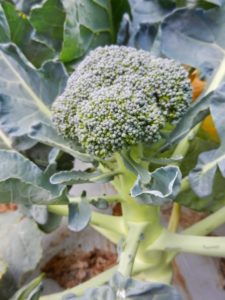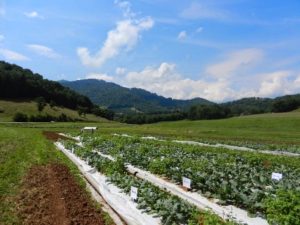It’s beginning to look a lot like broccoli – then and now!
go.ncsu.edu/readext?466546
en Español / em Português
El inglés es el idioma de control de esta página. En la medida en que haya algún conflicto entre la traducción al inglés y la traducción, el inglés prevalece.
Al hacer clic en el enlace de traducción se activa un servicio de traducción gratuito para convertir la página al español. Al igual que con cualquier traducción por Internet, la conversión no es sensible al contexto y puede que no traduzca el texto en su significado original. NC State Extension no garantiza la exactitud del texto traducido. Por favor, tenga en cuenta que algunas aplicaciones y/o servicios pueden no funcionar como se espera cuando se traducen.
Português
Inglês é o idioma de controle desta página. Na medida que haja algum conflito entre o texto original em Inglês e a tradução, o Inglês prevalece.
Ao clicar no link de tradução, um serviço gratuito de tradução será ativado para converter a página para o Português. Como em qualquer tradução pela internet, a conversão não é sensivel ao contexto e pode não ocorrer a tradução para o significado orginal. O serviço de Extensão da Carolina do Norte (NC State Extension) não garante a exatidão do texto traduzido. Por favor, observe que algumas funções ou serviços podem não funcionar como esperado após a tradução.
English
English is the controlling language of this page. To the extent there is any conflict between the English text and the translation, English controls.
Clicking on the translation link activates a free translation service to convert the page to Spanish. As with any Internet translation, the conversion is not context-sensitive and may not translate the text to its original meaning. NC State Extension does not guarantee the accuracy of the translated text. Please note that some applications and/or services may not function as expected when translated.
Collapse ▲8/4/2022 – The post below was written in 2015. This project is going through 2022. Be sure to look at what has happened since with our broccoli projects. Just search for “broccoli” in our website
2/16/2015 – Margaret Bloomquist is a research assistant in my program. She coordinates all of our broccoli projects and she wrote this blog post to keep you informed about our activities with broccoli. We are gearing up for another summer of broccoli research! There is a lot of excitement throughout the state for broccoli as a new cash crop for conventional and organic growers. Our efforts at the Mountain Research Station in Waynesville, NC are complemented with on-farm trials at six regional farms. Stay tuned for updates on participating growers and opportunities for education and collaboration throughout the season.
In 2014 and again for the 2015 season, we will bring the top six varieties for summer broccoli crown production to our area farms. Three organic farms in the region will participate this year with on-farm trials utilizing variety selection and best system management practices developed through the project.







